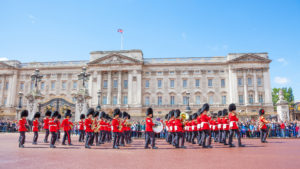
5-Day Awesome Kenya – High End
Days 5 days, 1 country Lodging 3 nights in Hotels, 1 nights in Special Stay Meals 4 Breakfasts, 4 Dinners Transport Pop-up roof 4×4 vehicle
7 Days, 1 country
2 nights in Hotels, 4 nights in Special Stay
7 Breakfasts, 6 Dinners
4X4 pop up minivan
Average 38 people
Expert Trip Manager + Driver Team + Local Guides
Our 5-day Kenya Big Five safari takes you to the most frequented parks, all with a high concentration of wildlife. On a good day, you can see Mount Kilimanjaro during your game drive at Amboseli National Park. Lake Nakuru is well-known for its flamingos and Big Five, while the Masai Mara National Reserve is the epitome of all the parks in Kenya that play host to one of the eight Wonders of the World.

Days 5 days, 1 country Lodging 3 nights in Hotels, 1 nights in Special Stay Meals 4 Breakfasts, 4 Dinners Transport Pop-up roof 4×4 vehicle

Days 4 days, 1 country Lodging nights in Hotels, 1 nights in Special Stay Meals 4 Breakfasts, 3 Dinners Transport Pop-up roof 4×4 vehicle Group

Days 10 days, 1 country Lodging 7 nights in Hotels, 2 nights in Special Stay Meals 10 Breakfasts, 9 Dinners Transport Pop-up roof 4×4 Mini
Your safari starts with a pick up at 7:30 am from your Nairobi hotel or airport and drive to Amboseli National Park.
You’ll arrive in Amboseli shortly after noon and check into your lodge/camp. Have hot lunch and then have some time to rest. At 4:00 pm, depart for an afternoon game drive.
The highlight here is that Amboseli has the greatest concentration of elephants in the world. It is home to over 1600 elephants from 56 different families. Each of the elephants has a name and a photo attached to its name.
After the game drive, we will head back to lodge/camp, freshen up and enjoy a freshly prepared dinner.
Your overnight stay will be at your lodge/camp.
Today’s itinerary is flexible and you can discuss with your guide and plan for the day’s schedule.
You can either have a relaxed breakfast and depart for full day game drives at around 7:30 am. You’ll have your picnic lunch with you. Return back to the lodge/camp late in the afternoon.
Alternatively, you can depart at 6:00 am on an early morning game drive. Later, you’ll return to your accommodation for breakfast and relax in the morning until midafternoon. Then at 4:00 pm, depart on an afternoon game drive.
At 6:30 am, return to lodge/camp for dinner and your overnight stay.
Have breakfast and then head for Naivasha. You will get to stop at the rift valley view point for a scenic photo session, later head to lake Naivasha.
You’ll arrive in the afternoon in time for lunch.
After lunch you will then head out for a Boat ride in Lake Naivasha followed by a walking safari in the animal sanctuary where you get a one on one encounter with animals like giraffes and zebras, you can almost touch them.
You will later head back to the lodge freshen up and enjoy a freshly prepared dinner.
You’ll have an overnight stay at your lodge.
Have breakfast at the lodge and then head to Hell’s Gate National Park. Here you have a chance for cycling safari and hiking at the famous Georges of the park.
Named for the intense geothermal activity within its boundaries, the Hell’s Gate National Park is a remarkable quarter of the Great Rift Valley. Spectacular scenery including the towering cliffs, water-gouged gorges, stark rock towers, scrub clad volcanoes and belching plumes of geothermal steam make it one of the most atmospheric Parks in Africa. Hell’s Gate is an ideal venue for a day trip from Nairobi where, in addition to the bio-diversity that includes raptors, visitors can enjoy mountain biking, rock climbing and a natural spa.
You will later head to Lake Nakuru.
Breakfast then head out for an early morning game drives in Lake Nakuru National Park.
Highlights here are that this is home to hundreds of rhinos both black and white, and other wildlife.
After the game drive, we head back to the hotel/lodge,
You will later drive to Masai Mara.
Between July and October, things get busy in the Great Rift Valley. Millions of zebra and wildebeest make the perilous crossing across the Masai Mara in search of new grazing territory. In their wake comes a veritable horde of predators.
You’ll arrive in time for lunch and then have time to relax from the drive.
At 17.00hrs you will be picked from your hotel by Maasai Morans (warriors) who will guide you through a walking safari in the dense Maasai Mara as you head later for a cultural tour to some of the old tribes that still exist.
You’ll return to lodge/camp for dinner and your overnight stay.
Today’s itinerary is flexible and you can discuss with your guide and plan for the day’s schedule.
You can have a relaxed breakfast and depart for full day game drives around the park at 6:30 am with your picnic lunch. This will give you a chance to visit the Mara River where the migration happens during it’s time. Also, you’ll have better chances to view wildlife all day and return back to the lodge for dinner and overnight.
A Masai Mara safari is an unmissable highlight of any holiday in Kenya. There are breathtaking panoramas in every direction, a vast range of wildlife including the Big Five and a rich cultural heritage to explore. Kenya’s Masai Mara is without doubt one of the greatest safari destinations in Africa.
Depending on your program, you will organize with your guide your departure from Masai Mara.
You will be transferred to your Nairobi location or to the airport for your homebound.
These popular itineraries can be customized to match your budget and how many people you’re planning to travel with, click on the tabs below to see more African safari destinations




Because you’re not just anyone, you can explore your uniqueness by tailoring your dream trip with an expert travel consultant in four simple steps.

Let our experts know, through email, call or chat, your grand bucket-list attractions, African dreams, expected experiences, and the unique type of traveler you are.

Tailor your holiday safari trip, adding and making little changes to suit your style of travel with your personal safari expert guiding you through the process.

Travel with peace of mind knowing that your personal safari manager is taking care of everything local and will be there when you come.

Even when your trip comes to an end, keep the dreams alive by sharing your experience with our fans and your social groups.
The Rwenzori Mountain Range is a stunning mountain range in Western Uganda that is home to the third-highest peak in Africa, Mount Stanley.
The best time to hike the Rwenzori Mountains is during the dry seasons, from December to February and June to August. During these months, the trails are more accessible, and the views are better
Hiking the Rwenzori Mountains is a strenuous activity that requires a high level of physical fitness. It is recommended that you begin training several months before the trek and consult with a doctor to ensure you are fit for the hike.
You will need to bring appropriate hiking gear, including sturdy hiking boots, warm clothing, rain gear, and a backpack. It is also recommended that you bring your own sleeping bag.
Yes, it is required to have a guide when hiking the Rwenzori Mountains. Guides are trained to navigate the terrain and ensure your safety during the hike.
The cost of hiking the Rwenzori Mountains varies depending on the route and itinerary. However, most treks range from $1,500 to $2,500 per person.
Yes, altitude sickness can be a concern when hiking the Rwenzori Mountains. It is important to take your time and acclimate to the altitude during the trek.
Accommodation during the trek is typically in mountain huts or tents. The huts and tents are basic and do not have electricity or running water.
Yes, hiking the Rwenzori Mountains is generally safe. However, it is important to follow the guidance of your guide and take necessary safety precautions during the trek.






Esco African Safaris is a reputable tour operator and DMC for Uganda, Kenya, Tanzania and Rwanda.
We specialize in offering sustainable Africa gorilla tours and wildlife safaris to our guests.
We operate enriching off-the-beaten-track adventures, wildlife viewing safaris, and gorilla trekking vacations that are tailored to our guests’ interests, travel dates, and budgets.
Our guests trust us to deliver memorable, exciting, and sustainable experiences.
Copyright © 2025 Esco African Safaris. All rights reserved.
WhatsApp us